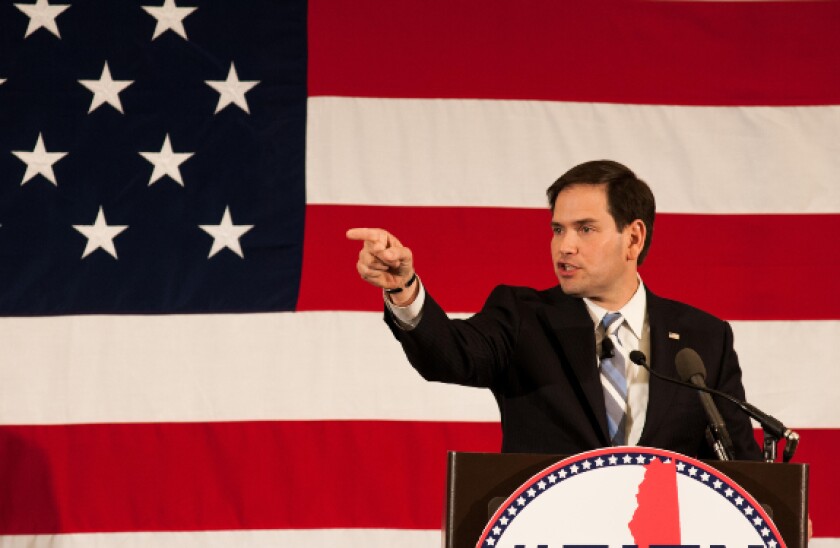The Florida senator suggested in an opinion piece in the New York Post on Sunday that if corporations did not stop expressing their support for progressive causes, his party should retaliate by withdrawing its support for business-friendly policies such as low taxes and light-touch regulation.
“No policymaker would allow a company to dump toxic waste into a river upstream of a thriving town he is charged with governing,” he wrote. “Yet corporate America eagerly dumps woke, toxic nonsense into our culture, and it’s only gotten more destructive with time.”
Specifically, he referred to Major League Baseball’s decision to move a competition out of Georgia in response to the state’s new voting law — which has been roundly criticised as one that suppresses voting, especially in minority communities — and Delta Air Lines CEO Ed Bastian for making his views on the same subject known. “The entire rationale for this bill was based on a lie,” Bastian had written in a memo to Delta employees.
Rubio also, bizarrely, associated wokeness with having ties to China and the outsourcing of jobs to countries with lower labour costs. Facebook chief Mark Zuckerberg came under fire for reportedly asking Chinese president Xi Jinping to propose an honorary Chinese name for his then-unborn baby at a White House dinner in 2016.
But whatever the internal logical inconsistencies of the argument, Rubio is not the only Republican to rail against “woke capital”.
“Parts of the private sector keep dabbling in behaving like a woke parallel government,” Senate minority leader Mitch McConnell is reported to have told reporters recently. “Corporations will invite serious consequences if they become a vehicle for far-left mobs to hijack our country from outside the constitutional order.”
The righteous indignation in defence of democracy rings a little hollow, coming as it does after decades during which the same Republican politicians have insisted that corporations enjoy the right to free speech under the constitution's first amendment — and that money counts as speech.
Calls to Rubio’s office in Washington, DC — to inquire whether his views on corporate wokeness extended to the growing use of environmental, social and governance criteria in investment decisions — went unanswered.
Green bonds were initially developed as a way for debt markets to recognise and reward good climate stewardship, but the labelled security phenomenon has since grown to incorporate metrics such as racial and gender diversity. It seems plausible that such programs could count as an example of the “woke progressive craziness” the senator was describing. Should they be investigated, reviewed and possibly banned? Or are they an acceptable way for investors to track the performance of the entities they lend to? Whose money is exercising its first amendment rights here — the borrower's proceeds or the investors'?
Would it be preferable to let borrowers offer red, white and blue bonds as an alternative to green ones? Such issues could, for instance, link a corporation’s financing activity to its support for the constitution, domestic jobs or traditional values.
The fact is that the debate has moved. Corporate America, if such a thing can be said to exist, has made up its mind. Addressing climate change, racial inequality and other questions of social equity is not only good for society — it's good business — the conditions for which are just the sort of thing the Republican Party has always prided itself on delivering.


